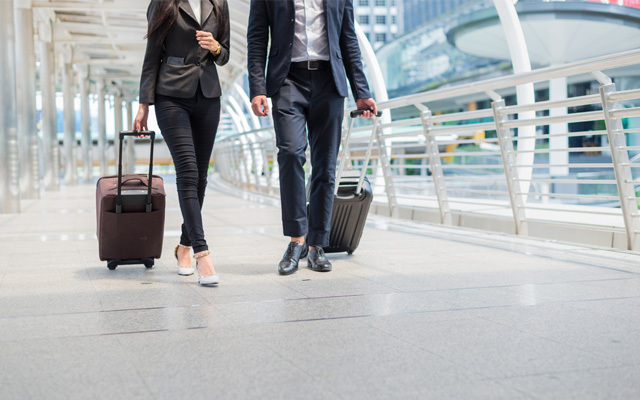
Chinese corporates that are reviving business travel in a post-pandemic world are now expecting their appointed Travel Management Company (TMC) and suppliers to support their need for greater duty of care to their travellers.
In turn, business travel specialists have responded with enhanced information communications and round-the-clock support for clients, shared panellists speaking at the CTW China 2021’s Safe Travel of the Future: How Will It Look? online session.

Harry Guo, head of account management – China, FCM Travel, detailed the need for accurate and up-to-date travel information that is accessible by the traveller online and offline. This must come hand in hand with a TMC that can offer a trusted global partnership network and round-the-clock support service.
Guo noted that safe travel requirements are not new, as pre-pandemic travellers have had to deal with severe weather conditions, natural disasters, airline strikes, political instability and terrorism.
“But for our post-pandemic travellers, Covid-19 restrictions and testing requirements, quarantine policies of each country, and the desire to be protected against the virus in enclosed aircraft cabins have all come together to pose greater challenges for every trip,” he remarked.
At CITS American Express Global Business Travel, client support has evolved during the pandemic to focus on three areas: traveller care, travel programme resource provision, and round-the-clock travel counsellor support.
Henni Hu, the company’s head of marketing – China, said a CITS American Express Global Business Travel study on the pandemic’s impact on Chinese business travel found that 60 per cent of companies are still uncertain about travel in a post-pandemic world.
“This uncertainty is normal because the pandemic is a first for many of us, and many travellers now have different requirements and needs due to changing travel confidence and desires,” Hu explained.
While a business trip could be sorted out with one phone call before the pandemic hit, today the same itinerary requires eight to 10 calls to flesh out. Most of the calls would be for information on changes to airport safety protocols, inflight mask requirements, safety precautions at the hotel, and more, shared Hu.
To support concerned customers, CITS American Express Global Business Travel has built a Covid-19 website that details travel advisories for over 140 countries as well as Chinese provinces. The website is updated daily by a team of professionals who track airlines, hotels and government pandemic measures. The same information is shared with customers on WeChat. Supporting this tool is a team of travel consultants who will speak to customers and provide assurance.
“Allowing our customers to seek clarifications and assurance from our service staff via calls helps to build travel faith,” said Hu.
Rebuilding travel confidence requires the effort of all tourism partners, opined Guo. As such, FCM Travel now screens suppliers to ensure they have high standards of health and safety.
Recognising the new concerns of travellers today, Judy Liu, general manager – corporate & partner sale China, Delta Air Lines, said her company has invested heavily into comprehensive health and safety measures, covering more than 100 criteria throughout the customer journey.
Liu highlighted two outstanding initiatives by Delta – it was the first airline in the world to establish an international cleaning department, responsible for formulating and implementing innovative safety and cleaning standards, and to employ a chief health officer who directs new technology adoption in health and safety initiatives.
Furthermore, the airline has chosen to block the sale of all middle seats, cutting inflight capacity to 60 per cent while other US airlines continue to fill all seats.
“For us, ensuring the safety of our customers and giving them peace of mind is more important. We gave up income now in hopes that when international travel resumes, more customers will choose us over other airlines,” said Liu.




















